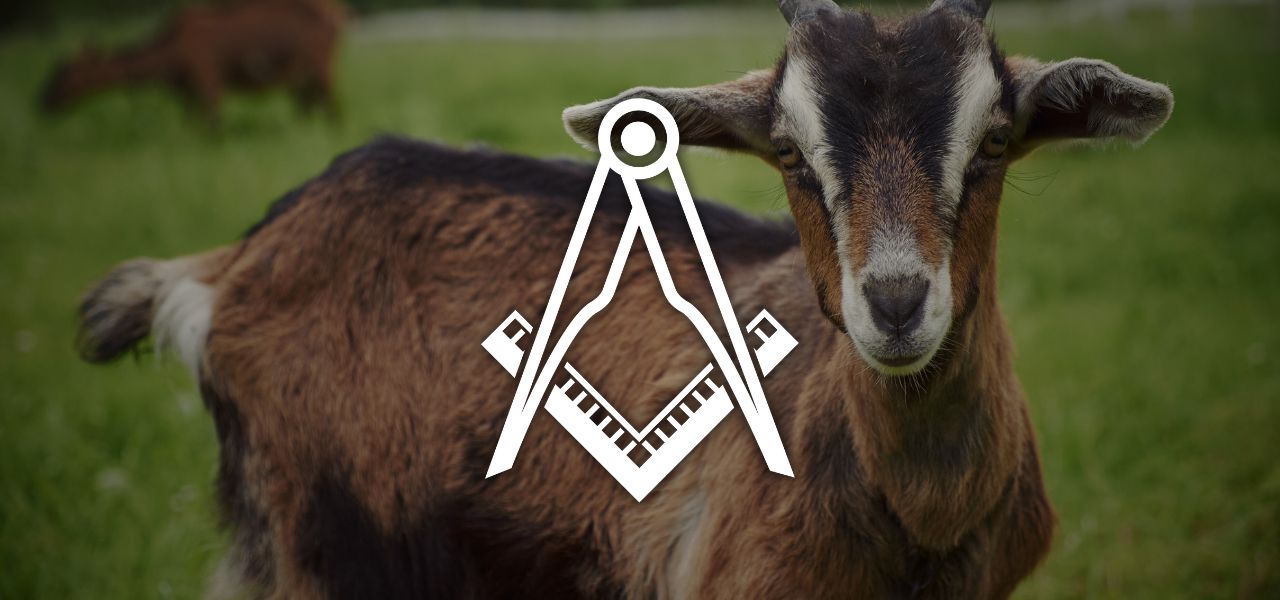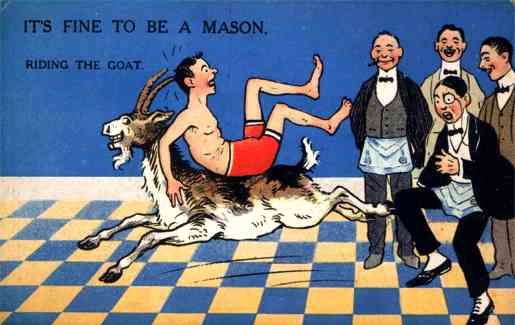Freemasonry is surrounded by mystery and intrigue. Many people wonder about what goes on inside this secretive brotherhood, especially when it comes to initiation rituals.
One common question is whether Freemasonry involves hazing.
The straightforward answer is no; Freemasonry does not practice hazing, meaning it does not have anything that humiliates, degrades, abuses or endangers a person, regardless of a person’s willingness to participate
Instead, it focuses on moral and spiritual development through symbolic ceremonies that emphasize brotherly love and support.
While some stories may suggest otherwise, actual members and reputable sources assert that any discomfort during Masonic rituals is not meant to harm but to teach and challenge new members.
If any lodge were found to be hazing, it would be acting against the principles and regulations of Freemasonry.
If you’re considering joining Freemasonry, rest assured that the organization strictly condemns any form of hazing.
Key Takeaways
- Freemasonry does not involve hazing.
- Rituals focus on moral and spiritual growth.
- Misconceptions about hazing are often based on myths.

Understanding Freemasonry
Freemasonry is a centuries-old fraternal organization that emphasizes moral and ethical values, personal growth, and community service.
History and Purpose
Freemasonry has roots dating back to the late 16th and early 17th centuries.
One key aspect of Freemasonry is its goal to promote moral and ethical development among its members.
It aims to bring men together who share a belief in “the Brotherhood of man under the Fatherhood of God”.
Membership is typically restricted to men, and the fraternity seeks to help them become better individuals.
As a global organization, Freemasonry has lodges almost everywhere and each lodge focuses on building the character of its members.
Symbols and Rituals
Symbols like the square and compasses are fundamental to Freemasonry. They represent the moral and ethical lessons taught within the fraternity.
Hazing-free rituals are an essential part of the Masonic tradition. They often include esoteric elements that can be symbolic and are meant to convey deeper lessons.
These rituals might seem secretive or confusing, but they aim to help members reflect on their values and actions.
Again, the organization strictly prohibits hazing. New members are welcomed with respect and dignity, reinforcing the brotherhood and supportive nature of Freemasonry.
This helps maintain a positive and inclusive environment for all its members.
Hazing in Freemasonry

Allegations and Facts
Yes, there are allegations that Freemasonry involves hazing.
Some think that secret rituals may include hazing. Yet, it’s crucial to know that any form of hazing is usually illegal in Masonic jurisdictions.
Many Masonic bodies explicitly state that hazing has no place in their practices.
For example, the Sacramento Scottish Rite clarifies that any so-called hazing elements in rituals are more about secret meanings and not physical abuse.
On forums like Reddit, Masons express that anything beyond a harmless joke is not in line with Masonic values.
If hazing does occur, it’s often a sign of a rogue group (clandestine Masons) not adhering to true Masonic teachings.
Masonic Principles on Conduct
Freemasonry teaches respect, dignity, and brotherhood.
Current members are encouraged to welcome new initiates with kindness and respect. Both discrimination and hazing are against Masonic principles, which promote inclusivity and respect for all races and religions.
Therefore, any form of hazing goes against these foundational beliefs.
Instead, the focus is on personal growth and mutual respect.
Freemasonry discourages any behavior that causes discomfort or harm to its members, clearly upholding the value of treating each other with dignity.
Comparing Initiation and Hazing
Freemasonry’s initiation rituals and hazing practices have distinct differences.
One aims to teach and guide, while the other can potentially harm and degrade.
Initiation Rituals Explained
Initiation in Freemasonry is a significant and solemn event. It is designed to educate new members about the fraternity’s values and traditions. The focus is on personal growth, moral teachings, and creating a sense of brotherhood.
These rituals involve symbolic acts and teachings.
For example, during the ceremony, candidates learn about the organization’s principles, such as ethics, charity, and brotherly love.
These elements are meant to be thought-provoking and enriching.
The process is highly controlled and respectful. Unlike hazing, there are no harmful activities or humiliating tasks.
The emphasis is on the intellectual and spiritual journey of the member.
When Rituals Raise Questions
While initiation rituals are meant to be positive, some aspects might lead to confusion or concern.
For instance, the secretive nature of these rituals can make outsiders skeptical. They may wonder if any hidden or inappropriate activities are involved.
Questions often arise about specific practices, like the symbolic acts (such as wearing a blindfold) used in initiation.
However, these acts are not meant to harm or intimidate. They are designed to convey deeper meanings and lessons relevant to Freemasonry.
Unlike college fraternities or other groups where hazing is known to occur, Freemasonry emphasizes respect and dignity.
This helps foster a supportive and ethical environment for all members. If you’re curious or concerned about what happens during initiation, it’s always a good idea to ask a knowledgeable member or refer to resources such as the Freemasons Community.
PS: There’s no goat-riding in Freemasonry, either:

Addressing Other Common Misconceptions
There are many misconceptions about Freemasonry. Let’s clear up a few key points.
Is Freemasonry a Secret Society?
Freemasonry is not a secret society. It’s a fraternity with some private rituals. You can find lodges all over the world.
Are the Rituals Secretive?
Freemasonry rituals are often thought to be secret because they’re not public. People outside the fraternity don’t have access to them, which leads to some misunderstandings.
Why All the Symbols?
Symbols are an important part of Freemasonry. They serve as tools for teaching the values and principles that members should uphold. They’re not about secrecy or hidden meanings.
Common Myths
- Myth: Freemasons control world events.
- Fact: Freemasonry is a local and social organization. It doesn’t control governments or businesses.
- Myth: Only men can join.
- Fact: While traditional Freemasonry is male-only, there are co-ed and female-only Masonic organizations.
By understanding these points, you can get a clearer view of what Freemasonry is really about.
The fraternity aims to build character, promote charity, and foster community.
Misconceptions often arise because of its private nature, but that doesn’t mean it’s hiding dark secrets.